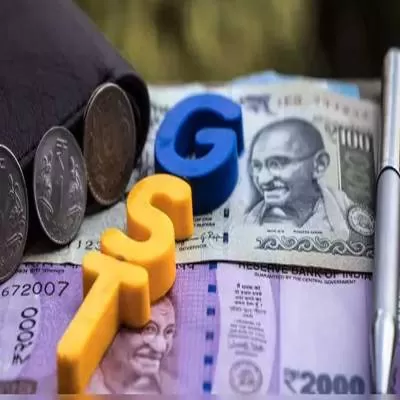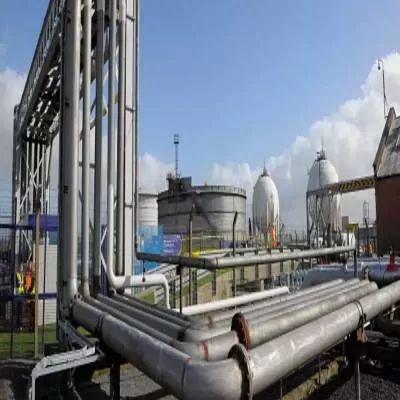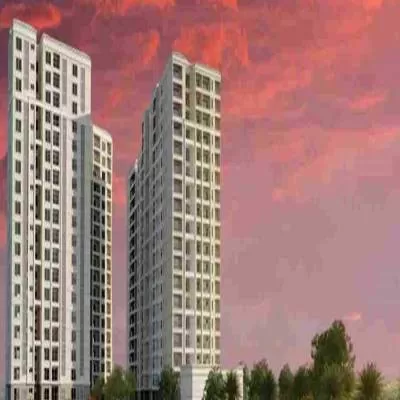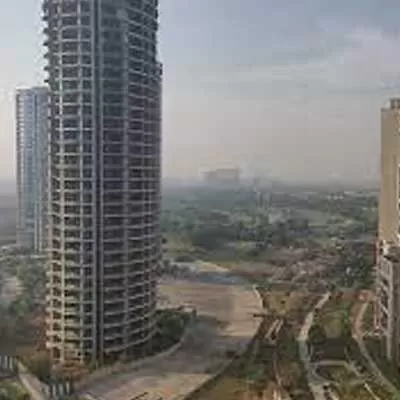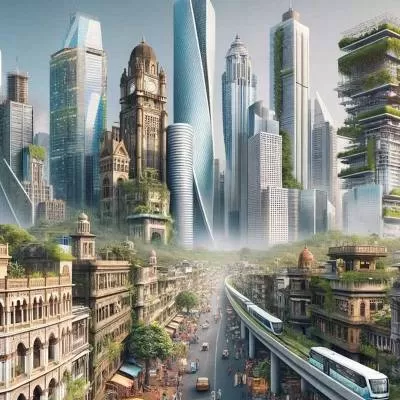- Home
- Real Estate
- GST For Real

GST For Real
In the monsoon session, the Rajya Sabha gave its unanimous approval to the Constitutional Amendment Bill, clearing the decks for the rollout of the Goods and Services Tax (GST). As of now, three states have already ratified the bill and others will quickly follow. The new indirect tax regime, for which the Union Government has set a deadline of April 2017, will have a considerable impact on several sectors of the economy, including real estate.
GST will replace 17 types of indirect taxes, reducing the cost of compliance. This will drive GDP growth and, in turn, boost demand for homes. In fact, there is little doubt that the GST rollout will prove a shot in the arm for the country´s economy in the medium to long term.
However, even as the new tax regime will have no impact on transactions in the ready-to-move category in the property market - indirect taxes are not levied in this category - under-construction properties are likely to become costlier after the GST rollout. Buyers currently have to pay service tax and value-added tax on transactions for under-construction properties. While the former is a central levy, the latter is a state tax.
As some states have not yet introduced VAT, this tax is not applicable to under-construction properties in those states. After a nationwide rollout of GST, property transactions in the hitherto untaxed states will also come within the tax ambit. Also, it is not clear how much abatement will be given for land in project cost. If it is 1/4th of project cost, at a projected GST rate of 18 per cent, tax on under-construction property will be 14.5 per cent, which is a steep increase from the current 5-8 per cent. This increase can be non-inflationary only if the cost for builders is reduced by 10-15 per cent and they can pass it to buyers. However, detailed reading of the model GST law shows this might not be the case as free input credits are not allowed in case of work contracts.
Meanwhile, on the positive side, home buyers will find it much easier to deal with one tax, rather than multiple taxes. At present, they have to go through a mind-boggling process of calculating various taxes on their home purchase, especially on different components such as PLC, Clubhouse, EDC, IDC, etc.
We receive many queries from home buyers regarding the confusing computation methods for various taxes levied on property purchase. This affects buyer sentiment too, who hold off their decisions to buy under-construction property. One tax at one rate will help home buyers take an informed decision.
GST is definitely good for commercial developers as it will reduce taxation by providing developers input credit for taxes paid for construction services against the GST charged on lease rentals.
However, if GST for under-construction property actually increases as our analysis show, it will not be a happy situation for developers. This will significantly shrink the demand for under-construction property. It also increases the arbitrage for a property that is ready and awaiting an occupancy certificate as by holding off sales, developers can charge occupancy certificate premium compared to under-construction property. In the new paradigm, developers will have to find alternative sources of funding to complete their project. At present, the developers´ lobby is having frenetic discussions with the government to arrive at a more favourable GST regime for real-estate transactions. We hope they succeed in their efforts.
About the author:
Ankur Dhawan, Chief Business Officer (Resale), PropTiger.com, has over 13 years of industry experience and has been associated with the organisation for more than two-and-a-half years.
The rollout of GST is good for the economy but may make under-construction properties pricier, says ANKUR DHAWAN. In the monsoon session, the Rajya Sabha gave its unanimous approval to the Constitutional Amendment Bill, clearing the decks for the rollout of the Goods and Services Tax (GST). As of now, three states have already ratified the bill and others will quickly follow. The new indirect tax regime, for which the Union Government has set a deadline of April 2017, will have a considerable impact on several sectors of the economy, including real estate. GST will replace 17 types of indirect taxes, reducing the cost of compliance. This will drive GDP growth and, in turn, boost demand for homes. In fact, there is little doubt that the GST rollout will prove a shot in the arm for the country´s economy in the medium to long term. However, even as the new tax regime will have no impact on transactions in the ready-to-move category in the property market - indirect taxes are not levied in this category - under-construction properties are likely to become costlier after the GST rollout. Buyers currently have to pay service tax and value-added tax on transactions for under-construction properties. While the former is a central levy, the latter is a state tax. As some states have not yet introduced VAT, this tax is not applicable to under-construction properties in those states. After a nationwide rollout of GST, property transactions in the hitherto untaxed states will also come within the tax ambit. Also, it is not clear how much abatement will be given for land in project cost. If it is 1/4th of project cost, at a projected GST rate of 18 per cent, tax on under-construction property will be 14.5 per cent, which is a steep increase from the current 5-8 per cent. This increase can be non-inflationary only if the cost for builders is reduced by 10-15 per cent and they can pass it to buyers. However, detailed reading of the model GST law shows this might not be the case as free input credits are not allowed in case of work contracts. Meanwhile, on the positive side, home buyers will find it much easier to deal with one tax, rather than multiple taxes. At present, they have to go through a mind-boggling process of calculating various taxes on their home purchase, especially on different components such as PLC, Clubhouse, EDC, IDC, etc. We receive many queries from home buyers regarding the confusing computation methods for various taxes levied on property purchase. This affects buyer sentiment too, who hold off their decisions to buy under-construction property. One tax at one rate will help home buyers take an informed decision. GST is definitely good for commercial developers as it will reduce taxation by providing developers input credit for taxes paid for construction services against the GST charged on lease rentals. However, if GST for under-construction property actually increases as our analysis show, it will not be a happy situation for developers. This will significantly shrink the demand for under-construction property. It also increases the arbitrage for a property that is ready and awaiting an occupancy certificate as by holding off sales, developers can charge occupancy certificate premium compared to under-construction property. In the new paradigm, developers will have to find alternative sources of funding to complete their project. At present, the developers´ lobby is having frenetic discussions with the government to arrive at a more favourable GST regime for real-estate transactions. We hope they succeed in their efforts. About the author: Ankur Dhawan, Chief Business Officer (Resale), PropTiger.com, has over 13 years of industry experience and has been associated with the organisation for more than two-and-a-half years.


